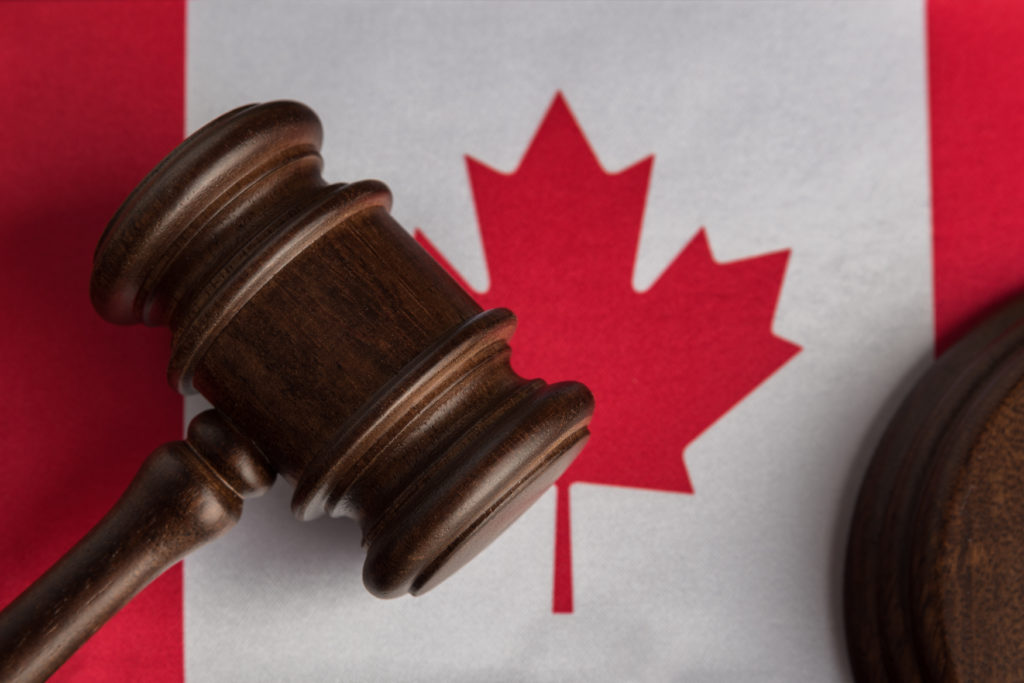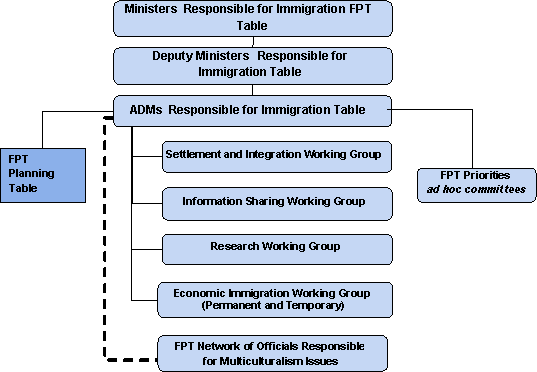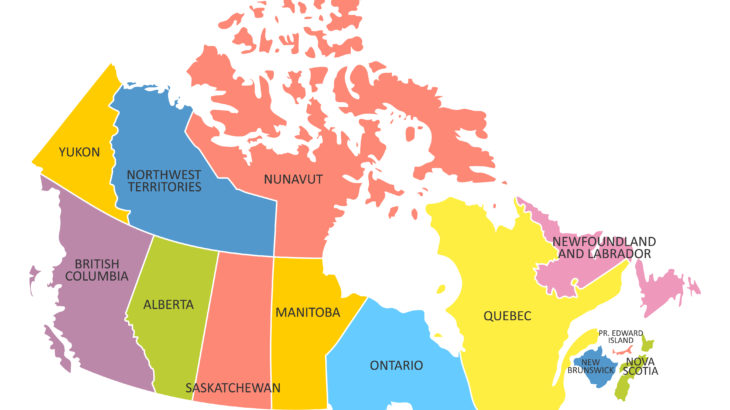Provincial nominee applicants often wonder what their obligations are after being nominated and become permanent residents as provincial nominees? Can they move to another Province? Are they obligated to reside in the nominating province, and if so, for how long? To address these questions, it is essential to understand the framework under which the Provincial Nomination Program (PNP) works.
The legal framework under which the Provincial Nomination Program (PNP) works.
The Canadian Constitution demarcates various responsibilities and powers between the Federal Government and the Provincial Governments. However, immigration falls under the concurrent list, where both the Federal Government and the Provincial Governments can make laws.

The Constitution Act, 1867, Section 95 states that provincial legislatures may make laws in relation to immigration into the province, and that the Parliament of Canada may make laws in relation to immigration into all or any of the provinces “and any law of the legislature of a province relative to … immigration shall have effect in and for the province as long and as far only as it is not repugnant to any Act of the Parliament of Canada.”
From time to time, the federal, provincial, and territorial governments meet to consult each other on issues of immigration, specifically, their unique immigration needs, based on specific jobs or workforce. Immigration, Refugees, and Citizenship Canada (IRCC) have agreements with provinces and territories on how they share responsibility for immigration. Based on the needs of each Province, some provinces and territories have comprehensive agreements with IRCC, while others have agreements that cover more specific issues.

Each agreement between IRCC, the Province or the Territory is negotiated separately.
All provincial/territorial immigration agreements are as follows:.
- Alberta
- British Columbia
- Manitoba
- New Brunswick
- Newfoundland and Labrador
- Northwest Territories
- Nova Scotia
- Nunavut
- Ontario
- Prince Edward Island
- Quebec
- Saskatchewan
- Yukon
Getting a Provincial nomination does not guarantee that your Permanent residency application will be approved?
It is important to understand that while Immigration is a concurrent subject on which both, federal and provincial governments can make laws, it is the federal government that has the prerogative on deciding who will become a permanent resident and who will not. Provinces can make province-specific laws to attract prospective immigrants to those provinces. Even when a province nominates a prospective immigrant, it is the federal government through IRCC, which will make a final decision in whether to approve the application for permanent residency.
Just because a Province approved and reviewed the documents, does not mean that IRCC will accept them too.
It is important to understand that each province has its own provincial laws and regulations under which it processes and approves the provincial nominee applications. After the provincial nomination is granted, and upon receiving an invitation to apply, a permanent residency application can be filed with IRCC. The permanent residency application will be processed under the Immigration and Refugee Protection Act and the regulations by IRCC. Both provincial nominee applications and permanent residency applications are entirely separate and processed under a different sets of laws and regulations. While some of the requirements may seem similar, and even the documents required may be the same. Still, it is an applicant’s responsibility to ensure that the Provincial and Federal requirements are met for each application separately.
IRCC is responsible for ensuring that each application meets the requirements of IRPA
Even when a provincial nomination is on file, IRCC will ensure that the requirements of IRPA are met, specifically:
- Admissibility screening (medical, criminality and security), based on federal admissibility standards and IRPR, Section 87; and
- The final selection of Provincial Nominees’s – the satisfaction of the visa officer that the applicant:
- Has the ability to establish economically in Canada;
- Intends to reside in the nominating province; and
- Has not been nominated on the basis of a passive investment.
The Federal Court has held that IRCC has the sole prerogative to make a decision on whether to approve a permanent residency application and the Province can only nominate, but not have a final say on whom to admit and whom not to as a permanent resident. (See Deol v. Canada (Minister of Citizenship and Immigration), 2013 FC 1147; and Noreen v. Canada (Minister of Citizenship and Immigration), 2013 FC 1169).
Understanding the “Intent to reside” requirement
One of many requirements to meet the PNP criteria is the intent to settle in the nomination province. When an applicant creates a profile for the Permanent Residency, they are asked about their interest to reside in different provinces. Alternatively, they may have sent a letter of interest (“LOI”) to the province communicating their interest in residing in that province. It is in consideration of this Interest that was communicated and after having satisfied the Provincial nominee program requirements, the Province issues a nomination.
However, there is an ongoing obligation upon the applicant to show that they intend to reside in the nominating province when their permanent residency application is being processed, as well as upon landing in Canada. This is why IRCC has started asking PNP nominees to submit Schedule 4, which is either a part of the application itself or may be asked separately.
a. Provincial nomination cannot be used as a backdoor entry to become a Permanent Resident
Provincial nominations are usually seen by many prospective applicants as a quick means to become permanent residents without ever having an intention to reside in the nomination province. This can cause serious trouble for an applicant and their family down the road.
Section 16(1) of the Immigration and Refugee Protection act states:
16 (1) A person who makes an application must answer truthfully all questions put to them for the purpose of the examination and must produce a visa and all relevant evidence and documents that the officer reasonably requires.
If an applicant is unable to show their intent to reside in the nominating province, they may be reported by the Border Security Officer (BSO) pursuant to section A44(1) for non-compliance with paragraph 87(2)(b) of the IRPR. If it becomes evident that the applicant never had the intention to ever reside in the nominating province, they can be held liable for misrepresentation pursuant to paragraph 40(1)(a) of the IRPA. The consequences of this can be a revocation of the permanent residency status, deportation, a ban from re-applying for all of them.
b. Mobility rights under the constitution
When an applicant’s Permanent Residency (PR) application is approved, irrespective of whether they applied as a CEC, FSW, PNP or FST, a Confirmation of Permanent Resident (COPR) document is issued. Effective the date on the COPR, the applicant becomes a Permanent Resident, either as soon as they land in Canada, or upon the issuance of a COPR if they are already in Canada. Upon becoming a PR, an individual is entitled to many constitutional rights, except the right to vote, run for political office, or be employed for jobs that need high-level security clearance, which only Canadian Citizens can have.
One of the many such rights a PR is entitled to, is the “Mobility Right.” Section 6 of the Canadian Charter of Rights and Freedoms, which is the same as the fundamental rights or bill of rights in other countries states:
6. (1) Every citizen of Canada has the right to enter, remain in and leave Canada.
(2) Every citizen of Canada and every person who has the status of a permanent resident of Canada has the right:
1. to move to and take up residence in any province; and
2. to pursue the gaining of a livelihood in any province.
A plain and simple reading of section 6 of the Canadian Charter would imply that upon becoming a permanent resident, an applicant could move and take up residence in any part of Canada and would have no obligation to reside in the nominating province.
However, the devil is in the details. Section 6(3)(a) & (b) are subject to certain regulations and laws, and states:
(3) The rights specified in section (2) are subject to:
a. any laws or practices of general application in force in a province other than those that discriminate among persons primarily on the basis of province of present or previous residence; and
b. any laws providing for reasonable residency requirements as a qualification for the receipt of publicly provided social services.
(4) Sections (2) and (3) do not preclude any law, program or activity that has as its object the amelioration in a province of conditions of individuals in that province who are socially or economically disadvantaged if the rate of employment in that province is below the rate of employment in Canada.
It is possible to waive one’s section 6(2) rights prior to becoming a citizen or permanent resident of Canada. A foreign national who agrees to practice medicine in a specific province in Canada for 5 years in order to obtain a work permit cannot subsequently claim rights under section 6 once he becomes a permanent resident since his section 6 rights have already been waived (Kirsten v. College of Physicians and Surgeons of Saskatchewan (1996), 138 D.L.R. (4th) 335 (Sask. Q.B.)). Provincial nominees do not expressly waive their section 6 rights. However, it is incumbent upon them to reside in the nominating province as per their agreement with the Province based on which they were granted the nomination.
In other words, provincial nominees agreements can infringe mobility rights, without being unconstitutional. Additionally, a law that is not saved by section 6(3) or (4) may be saved by analysis under section 1 of the Charter as being demonstrably justified in a free and democratic society. Until now there has been no case that has come to light dealing with mobility rights and PNP. Therefore, in order for the applicants to avoid any issues resulting in misrepresentation, the provincial nominees even after becoming permanent residents should reside in the province of nomination.
Does this mean that the provincial nominees can not leave the Province of nomination?
By moving to another province than the nominating province immediately after an applicant becomes a permanent resident, their intentions to reside in the nominating province may be questioned.

There are a few things that applicants can do before they decide to leave the province that nominated them:
a. Actively look for other jobs within the nominating province.
b. Properly document their job search activities, including the results for each job that they applied for.
c. Exhaust all means of finding employment inside the province.
If a provincial nominee is unable to find a job or if a job being offered is at a substantially lower wage as compared to a similar position in another province then the move may be justified. Also, moving to another province temporarily to pursue education would be another
Conclusion
If you decide to immigrate to Canada a provincial nominee you should be aware and willing to meet your obligation to reside in the nominating province. If you consider using PNP as a backdoor to gain more points with an intent to never stay in the Province, that could haunt you in the long run. Since there is no available caselaw on this point or, no enforcement action reported, which is biblically available, it is difficult to predict the actual consequences of not meeting you obligation to reside in the nominating province. It is also for the nominating provinces to ensure that they are better prepared to attract the new immigrants and provide them with ample opportunities of livelihood in their field of expertise.
DISCLAIMER: Our website contains general legal information. The legal information is not legal advice and should not be treated as such. The legal information on our website is provided without any representations or warranties, express or implied. Further, we do not warrant or represent that the legal information on this website: will be constantly available, or available at all; or is true, accurate, complete, current or non-misleading. No lawyer-client, solicitor-client or attorney-client relationship shall be created through the use of our website.

